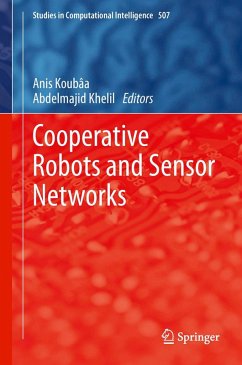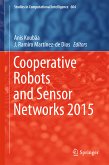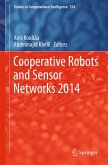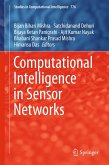The book consists of five chapters. The first chapter presents a cooperation strategy for teams of multiple autonomous vehicles to solve the rendezvous problem. The second chapter is motivated by the need to improve existing solutions that deal with connectivity prediction, and proposed a genetic machine learning approach for link-quality prediction. The third chapter presents an architecture for indoor navigation using an Android smartphone for guiding a variety of users, from sighted to the visually impaired, to their intended destination. In chapter four, the authors deal with accurate prediction modeling of ocean currents for underwater glider navigation. In chapter five, the authors discuss the challenges and limitations of RSS-based localization mechanisms and propose, EasyLoc, an autonomous and practical RSS-based localization technique that satisfies ease of deployment and implementation.
Dieser Download kann aus rechtlichen Gründen nur mit Rechnungsadresse in A, B, BG, CY, CZ, D, DK, EW, E, FIN, F, GR, HR, H, IRL, I, LT, L, LR, M, NL, PL, P, R, S, SLO, SK ausgeliefert werden.
Hinweis: Dieser Artikel kann nur an eine deutsche Lieferadresse ausgeliefert werden.









